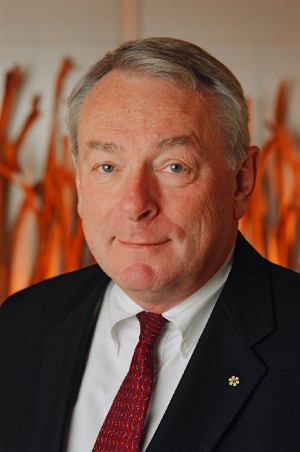Current WADA director general Howman also raises questions
 Former WADA president Richard Pound has said that he believes the UCI was aware of doping by Lance Armstrong and his US Postal Service team, but failed to act on it.
Former WADA president Richard Pound has said that he believes the UCI was aware of doping by Lance Armstrong and his US Postal Service team, but failed to act on it.
“It is not credible that they didn’t know this was going on,” Pound told AFP. “I had been complaining to UCI for years.”
Armstrong’s image has taken a hammering in recent days after the publication of a thousand-page report by the US Anti Doping Agency into doping by the Texan and others on his US Postal Service team. The evidence amassed includes testimony from 26 people, including eleven former team-mates, as well as financial records, copies of emails, lab test results, blood profiles and other information.
The sheer volume of evidence has swayed those who previously insisted Armstrong was innocent, with the testimony of individuals such as George Hincapie being particularly damaging.
Pound has long raised questions about Armstrong and was also sued by the UCI over criticisms of its anti-doping policies. He spoke about that and other subjects recently in a long interview with VeloNation.
Reacting to USADA’s report, Pound makes it clear that he feels the UCI could have done much more. “Where the rubber really hits the road is with UCI,” he told AFP, asserting that if the governing body were to “persist with denial,” that investigations may spread to the Spanish and Italian pro cycling communities, among others. He said that his could “put their whole sport in jeopardy.”
“All these show the same behaviour as (U.S. Postal Service) and UCI never seemed to be able to deal with it,” said Pound. “They can’t be so blind to not know this was going on.”
Meanwhile the current director general of WADA, David Howman, has said that he too believes that some of those charged with protecting the sport of doping did not do their jobs.
“What seems to have happened in this particular scenario is that it went on for many years under the noses of those who were supposed to be detecting it and at times probably with their knowledge,” he said to New Zealand’s LiveSport Radio.
He didn’t specify who he was speaking about, but was likely referring to Armstrong’s positive test for a corticosteroid at the 1999 Tour de France plus a reported incident in 2001. The first of those was dismissed by authorities after a prescription was presented – something USADA witnesses say was post dated and thus broke the rules – while the second relates to testimony that Armstrong told team-mates that he had failed a test for EPO in 2001, but that the UCI would look after it.
“Lance Armstrong has (been) tested more than a couple of hundred times. None of them were positive in terms of recorded positives,” said Howman. “There have been suggestions that there may have been a couple of them that were not fully investigated, [but] they remain at the moment suggestions.”
It is not clear if WADA is looking deeper into these, but the tone of Howman’s comments suggest that the agency may well be.
The UCI has insisted that it did everything it could in the years concerned, with its current president Pat McQuaid saying that it fulfilled all its responsibilities. Speaking at last month’s world road race championships, he dismissed suggestions that the UCI bore any fault for the doping problem which had affected the sport.
Commenting on Armstrong’s decision not to fight the charges against him, Howman said that he believed a clean rider would have stood up and defended his name.
“To be honest I was surprised when he decided not to take part in the whole hearing process,” he said. “There was his chance to tell everybody what the situation was, he would be able to cross-examine all of those who were giving evidence against him. I guess he decided on the advice of his lawyers not to partake and so it has led to this.
“It’s a bit difficult now to see how he can sit on the sidelines and criticize it when he didn’t even front up. That’s not really the mark of the clean athlete.”
WADA’s president John Fahey released a statement this week welcoming USADA’s reasoned decision and stated that the agency would now consider the comments plus the evidence.
“The process followed by USADA has at all times been appropriate and careful, and in compliance with the World Anti-Doping Code (Code). Union Cycliste Internationale (UCI) now has 21 days to determine whether it wishes to appeal the case. Thereafter, WADA has a further 21 days to determine whether we will exercise our independent right of appeal.”
It is however thought unlikely that WADA will go to the Court of Arbitration for Sport with an appeal.
“We would like to commend USADA for having the courage and the resolve to keep focused in working on this difficult case for the sake of clean athletes and the integrity of sport,” he said.